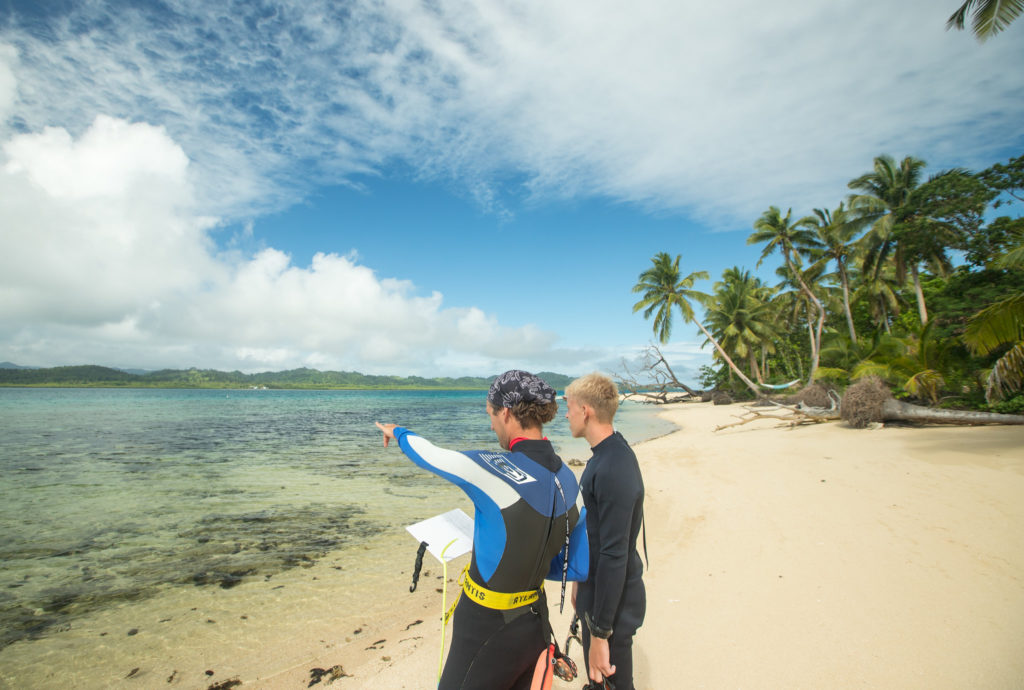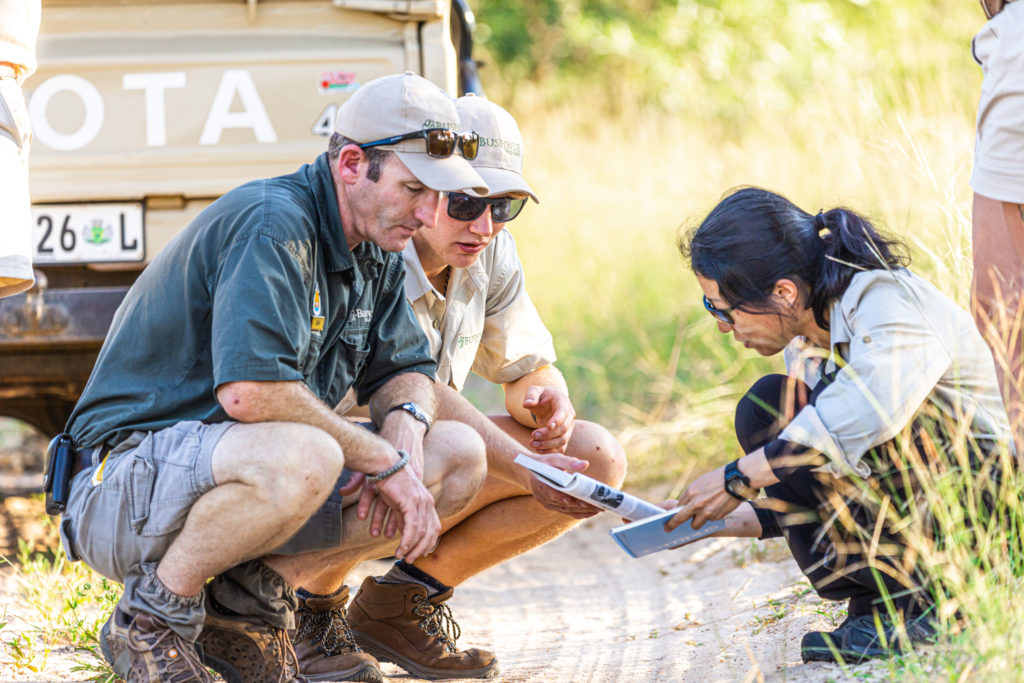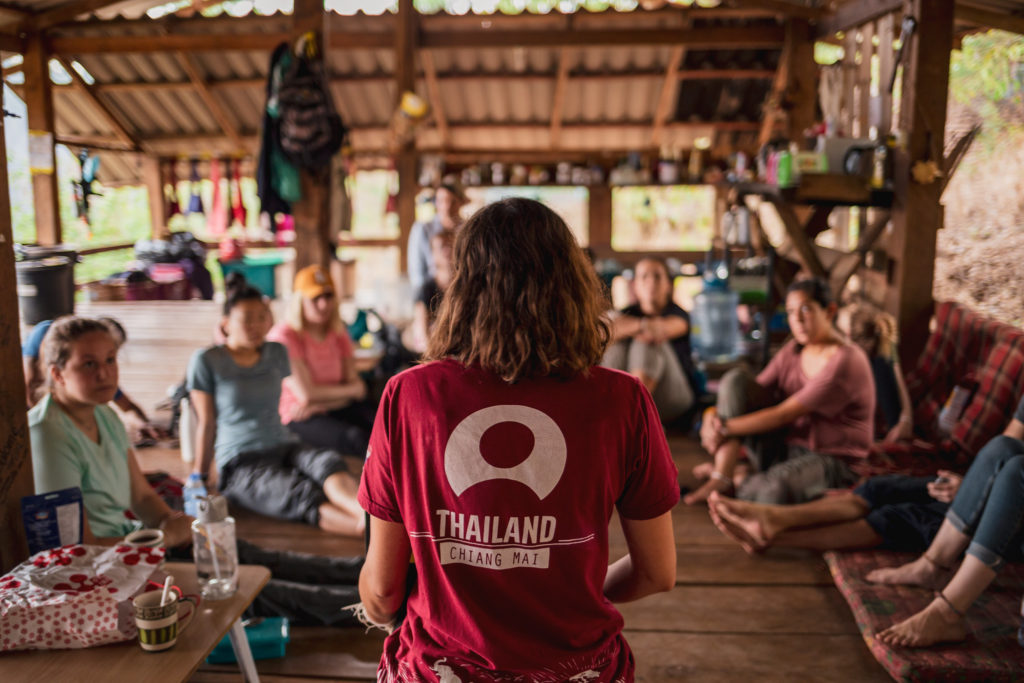Explore the different types of peccaries found in Costa Rica, as well as their importance in the local ecosystem, habitats, behavior, and social structure.
GVI
Posted: May 10, 2023

Petrina Darrah
Posted: April 1, 2022
The whole world is a school, and environmental internships are your classroom. While there are many wonderful ways to learn, the best way is to dive right in and get involved in a life-changing experience.
There are some lessons books will never be able to teach: how to spot a leopard in the wild, what a sunset on the South African bushveld looks like, the vibrancy of an underwater ecosystem in Seychelles.
And there are some things you will never be able to understand unless you experience them. Like the fragile beauty of our planet and why it’s worth dedicating yourself to protecting it.
Seeing the wonders of the world on your television screen is one thing. Seeing them right in front of you, experiencing them all around you, is another. The experience of being immersed in the sights, sounds and smells of a place is a rich learning opportunity. Education doesn’t just happen in schools – there are vast, exciting, expansive learning opportunities you can discover through an internship abroad, research fellowship and professional apprenticeship program.

GVI’s environmental internships offer ample opportunities for practical learning.
Our programs actively contribute to leading research in the fight against biodiversity loss. By being immersed in the research, you’ll gain hands-on research skills while working to save some of the world’s most at-risk ecosystems.
You’ll be learning best-in-class approaches. With the United Nations Sustainable Development Goals as a framework, we ensure our solutions have a lasting positive impact.
All GVI international internship programs include field-specific training by experienced professionals, and specialised work experience in international development focuses, supported by the UN SDGs.
On an internship abroad in Seychelles, you could learn how to collect research data, understand the impact of invasive species, and participate in the scientific monitoring of giant tortoises and mangrove populations on a coastal environment restoration program.
Gain practical experience of how to collect and analyse data while participating in a plastic pollution and conservation internship abroad in Thailand. You’ll be actively involved in minimising the effects of plastic pollution, and learn how to deliver educational workshops as you raise awareness of environmentally friendly practices with locals.
In Madagascar, you could learn how to set camera traps to capture photos and videos of elusive lemurs, as you participate in research to protect them. On this Madagascar lemur and wildlife conservation project, you could also learn how to survey the ancient rainforest for tiny frogs and chameleons, and see habitat restoration in action

Of course, there are many wonderful things you can learn from studying. It’s just a lot more exciting diving into books when you’re in a stunning location, and can put your lessons into practice in a short space of time.
This isn’t proven by science, but we have observed that studying with a backdrop of fans whispering against humid heat, the chirruping of frogs and birds, and waves rolling against a deserted beach, is 100% more enjoyable. With the wilderness as your classroom, your personal development will be taken to another level when studying in the field.
GVI’s environmental internships and volunteer programs offer a range of learning options with internationally recognised qualifications from our academic partners. Choose from online courses on leadership, marine and wildlife conservation, or community development. Learn about careers in sustainable development or work towards obtaining a TEFL or PADI qualification.
You could enhance your dive skills while surveying coral reefs, or learn how to teach English while learning about another culture. You will learn about the principles of sustainable development and conservation research before seeing these activities in action.
On a coral reef ecology internship in Dawasamu, Fiji, where 40% of the world’s coral grows, you can gain a formal qualification in leadership and gain your Coral Reef Research Diver Distinctive Speciality. This internship encompasses workshops and presentations on coral reef ecology and other marine life, giving you the chance to expand your knowledge in this area and enhance the practical elements of the program.
Or, join a study abroad program in Thailand where you’ll contribute to preserving Thailand’s elephants. During this 6-week program you’ll gain unique insights into how communities play an essential role in conserving this incredible species.

Some lessons you can only get through absorbing a different culture, becoming an observer and immersing yourself in different scenarios. Understanding other cultures, for example, is difficult to do in theory. It makes a lot more sense in practice when you can speak with and work alongside people in their own communities, in a country different from your own.
The world urgently needs people who are active global citizens, to advocate for change and bring down the barriers that divide global communities.
By taking on an internship abroad, you won’t just be learning about other people – you’ll learn about yourself as well. You’ll discover your capacity for learning and expansion, how well you can overcome challenges, and new depths of empathy for global challenges.
You’ll go home brimming with the lessons learned and a new appreciation of the world and its wildest places.
GVI is dedicated to conserving our planet, ethically, with your help. To discover a wilder way to learn, and the opportunity to find sustainable solutions that will change the world for good, get in touch to find out more about our environmental internships abroad.
We understand that you may have questions about how COVID-19 will affect your travel plans. Visit our FAQs page which explains our latest safety protocols in response to COVID-19.
Disclaimer: The images in this article were taken pre-COVID-19.
By Petrina Darrah
Explore the different types of peccaries found in Costa Rica, as well as their importance in the local ecosystem, habitats, behavior, and social structure.
GVI
Posted: May 10, 2023